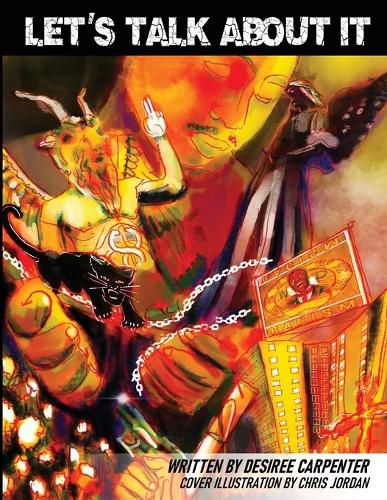Readings Newsletter
Become a Readings Member to make your shopping experience even easier.
Sign in or sign up for free!
You’re not far away from qualifying for FREE standard shipping within Australia
You’ve qualified for FREE standard shipping within Australia
The cart is loading…






This title is printed to order. This book may have been self-published. If so, we cannot guarantee the quality of the content. In the main most books will have gone through the editing process however some may not. We therefore suggest that you be aware of this before ordering this book. If in doubt check either the author or publisher’s details as we are unable to accept any returns unless they are faulty. Please contact us if you have any questions.
Safe space conversations can be the foundations to build bridges between our differences of race, culture, social issues, and all things that affect everyday people. This workbook is intended to help professors and other educators, public leaders, non-profits, community organizers, and the public interested in having the dialogues that can bring about community growth and positive change.
Each chapter contains a Tupac song that we will break down and discuss through conversation and questions. The chapters begin and end with relatable quotes by prolific writers from, Tzu Sun, St. Augustine, and Harriet Tubman to Jay Z, Beyonce, KRS One, Meek Mill and Barack Obama. These quotes are intended to spark our brains into thinking of things greater than ourselves. The challenge would be to ask ourselves, "Why did this person say this?" and "Did it need to be said at all?" What were the conditions that would drive someone to say something so profound?
The goal is to encourage heartfelt dialogue between people from different communities and perspectives that is challenging yet inviting.
Professors and group leaders can use this tool to guide these deep and at times very uncomfortable conversations and differences of opinion in safe space atmospheres without the fear of backlash due to the perception of a position. Incorporating hip-hop lyrics from an artist such as Tupac can aid in the growth of what we have in common and better understand what we don't have in common in a more meaningful way.
$9.00 standard shipping within Australia
FREE standard shipping within Australia for orders over $100.00
Express & International shipping calculated at checkout
This title is printed to order. This book may have been self-published. If so, we cannot guarantee the quality of the content. In the main most books will have gone through the editing process however some may not. We therefore suggest that you be aware of this before ordering this book. If in doubt check either the author or publisher’s details as we are unable to accept any returns unless they are faulty. Please contact us if you have any questions.
Safe space conversations can be the foundations to build bridges between our differences of race, culture, social issues, and all things that affect everyday people. This workbook is intended to help professors and other educators, public leaders, non-profits, community organizers, and the public interested in having the dialogues that can bring about community growth and positive change.
Each chapter contains a Tupac song that we will break down and discuss through conversation and questions. The chapters begin and end with relatable quotes by prolific writers from, Tzu Sun, St. Augustine, and Harriet Tubman to Jay Z, Beyonce, KRS One, Meek Mill and Barack Obama. These quotes are intended to spark our brains into thinking of things greater than ourselves. The challenge would be to ask ourselves, "Why did this person say this?" and "Did it need to be said at all?" What were the conditions that would drive someone to say something so profound?
The goal is to encourage heartfelt dialogue between people from different communities and perspectives that is challenging yet inviting.
Professors and group leaders can use this tool to guide these deep and at times very uncomfortable conversations and differences of opinion in safe space atmospheres without the fear of backlash due to the perception of a position. Incorporating hip-hop lyrics from an artist such as Tupac can aid in the growth of what we have in common and better understand what we don't have in common in a more meaningful way.